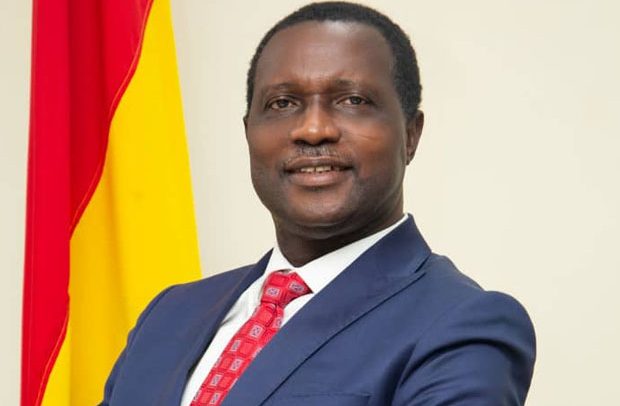The Education Minister, Dr. Yaw Osei Adutwum, has launched the Communities of Excellence Programme (CEP).
The novelty aims at fostering collaboration between all stakeholders to improve the quality of education in the country.
The initiative is to build a strong network of highly literate communities across the country where no child is left behind and every citizen is empowered to make a meaningful contribution to the socio-economic transformation of the country.
Launching the programme at Mamfe in the Akuapem South District, Dr. Adutwum called on opinion leaders, chiefs, political leaders, teachers and other participants to take a keen interest in the education of their children.
He explained that under the CEP, chiefs would play a critical role in ensuring improvement in learning outcomes by providing accommodation and other support to teachers and education providers.
The Education Minister indicated that as part of the programme, the final results of children would be submitted to the chiefs, assemblymen, teachers, Members of Parliament and other stakeholders to help scrutinise and assess the student’s performance.
The CEP programme seeks to ensure that 90 per cent of basic four pupils aged ten attain foundational competencies in literacy, numeracy and socio-emotional development.
According to Nana Baffour Awuah, the Director of Pre-tertiary Education at the Ministry of Education, the programme held the positive transformation for 700 schools, 232 communities and 40 districts throughout the country.
He urged the communities to foster a culture of cooperation, innovation and continuous improvement to help sustain the programme.
The Kyidomhene of the Akuapem Traditional Area and Chief of Mamfe, Nana Ansah Sasraku III, appealed to his colleague chiefs across the country to involve themselves in the implementation of the CEP in order to bring about the change desired.
He noted that education must be of paramount interest to every traditional area, with chiefs taking a keen interest in it.
Nana Ansah Sasraku III said education remained the key enabler in dealing with the levels of poverty, stressing that the interest of various stakeholders would help improve the quality of education delivery in the country.
He also appealed for attention to be paid to the boy-child education since much had been attained with the girl-child.
The chief said this was necessary because the two genders must be pulled along side by side, or else the gains made on one side would weigh down the other.
He also pleaded for the government to find ways to provide free sanitary pads for girls in schools since their menstrual cycle often acted as a hindrance to education.


